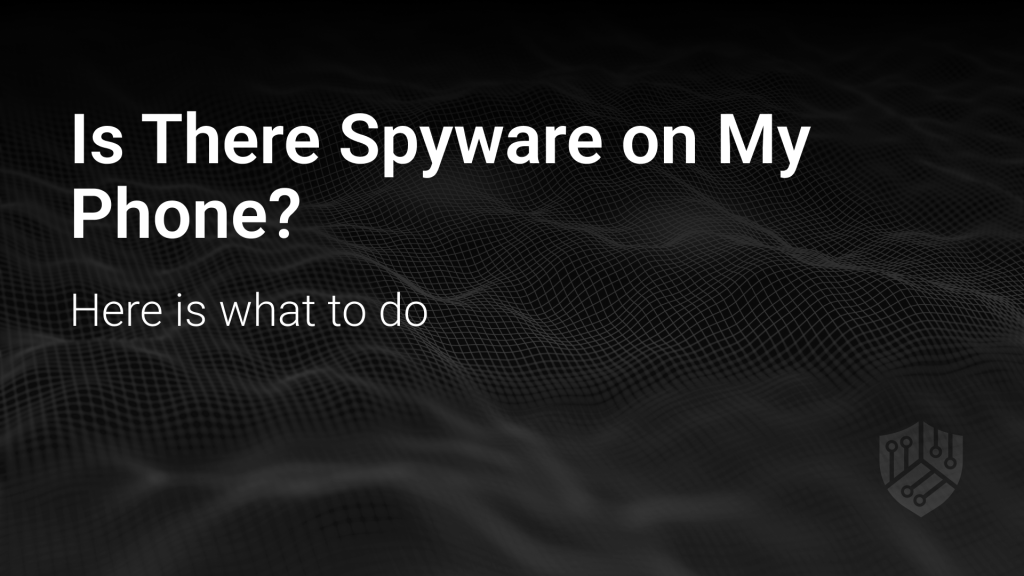May 30, 2025
Is There Spyware on My Phone? Tips to Avoid Malicious Apps that Look Legitimate

Our phones now store some of the most personal and valuable details: vacation photos, work-related messages, contacts, banking details, and location data. And this is exactly why cybercriminals target these devices. If you’re wondering, “is there spyware on my phone?” or want to know how to keep your phone safe, CyberFlow’s security guide will help you stay protected.
What Are Spyware Scams and How Can You Recognise Their Signs?
Spyware scams involve malicious software that secretly monitors your phone activity and steals your personal data. They are often disguised as useful apps like games, productivity tools, or even security software. Thus, in most cases, the phone owner installs them on their device.
Once installed, spyware tracks your location, records your conversations, steals passwords, and accesses your photos and messages. What is most dangerous is that you have no idea that all this is happening.
So, how can you know if you have spyware on your phone? Usually, an infected phone displays several warning behaviours:
- Unusually fast battery drain
- Slower phone performance
- Unexpected data usage increases
- Apps you don’t remember downloading
- Strange pop-ups or advertisements
- Overheating when not in heavy use
- Unusual background activity or sounds during calls.
If you notice any or several of these symptoms, you should run a security scan or let experts investigate the issue.
Essential Ways to Avoid Spyware Apps
Prevention is better than treatment, so our cybersecurity specialists recommend increased prudence when downloading and installing apps on your phone. These are the best practices you should always follow:
1. Only Download Apps from Official App Stores
The first and most important rule is to stick to official app stores like Google Play Store or Apple App Store. These platforms have security measures in place. They screen developers uploading apps before allowing them on the platform. Then, they continue monitoring and scanning apps before they’re made available for download. While not foolproof, they significantly reduce your chances of downloading malicious software.
Thus, never download apps from third-party websites, even if they promise exclusive features or free versions of paid apps. These unofficial sources are teeming with spyware disguised as legitimate applications. Remember the golden rule: if the offer is too good to be true, it usually isn’t.
2. Check App Permissions Carefully
Many people simply tap through the steps for installing an app without reading them. One of these steps refers to the phone features the app can access.
Ask yourself: Does this app really need access to your camera, microphone, contacts, or location? For example, a weather app doesn’t need to access your phone camera or contact list.
If a simple app, like the example above, requests excessive permissions, it is likely up to no good. When in doubt, don’t install the app.
3. Read Reviews and Research the Developer
Take time to read user reviews before downloading any app. Look for patterns in negative reviews, mentioning:
- suspicious behaviour
- unexpected permissions
- performance issues.
But keep in mind that some fake apps may have fake positive reviews. They are usually short, containing bombastic words, such as:
- Great app!!!!!
- Amazing!!!!
- Incredibly good!!!
Also, take the time to learn more about the app developer. Legitimate companies post their website on the app page, as well as detailed contact information. They also have a portfolio of other apps with good reputations. If you can’t find reliable information about the developer, consider it a red flag.
4. Keep Your Phone’s Operating System Updated
Regular software updates aren’t just about new features – they often include critical security patches that protect against newly discovered vulnerabilities. Cybercriminals frequently exploit these security holes to install spyware on devices.
Enable automatic updates for your phone’s operating system and install them promptly when they become available. This simple step protects you from many types of malicious software.
5. Don’t Jailbreak or Root Your Phone
One of the biggest mistakes people make is jailbreaking their iPhone or rooting their Android phone. This will give you more control over your phone. But, in this way, you also remove crucial security protections built into the operating system.
Jailbreaking and rooting essentially disable the security barriers that prevent malicious apps from being installed. The temporary benefits of having more customisation options are really not worth the significant security risks.
Stay Safe and Protected with CyberFlow!
The best defence against spyware is prevention. By following these five simple rules, you can significantly reduce your risk of falling victim to spyware scams.
Remember, your personal information is valuable. Taking a few extra minutes to verify an app is always worthwhile. And make sure that you use the best cybersecurity protection for all your business devices, delivered by CyberFlow. Contact us today, before hackers manage to steal your data!
About Us
If you are interested on apply more security to your business contact us
Recent Post
-
Fake Microsoft Teams Installer Delivers Oyster Malware
-
Why Unified Cybersecurity is No Longer Optional
-
Deepfake CEOs and Voice Cloning: The New Frontier of Business Email Compromise
-
The Cybersecurity Paradox: Why More Security Tools Create More Vulnerabilities
-
Ransomware Evolution: From Spray-and-Pray to Surgically Targeted Strikes
-
Shadow IT: How Employees Accidentally Become Insider Hackers
-
Cybersecurity ROI: Measuring the Value of Attacks That Never Happened
